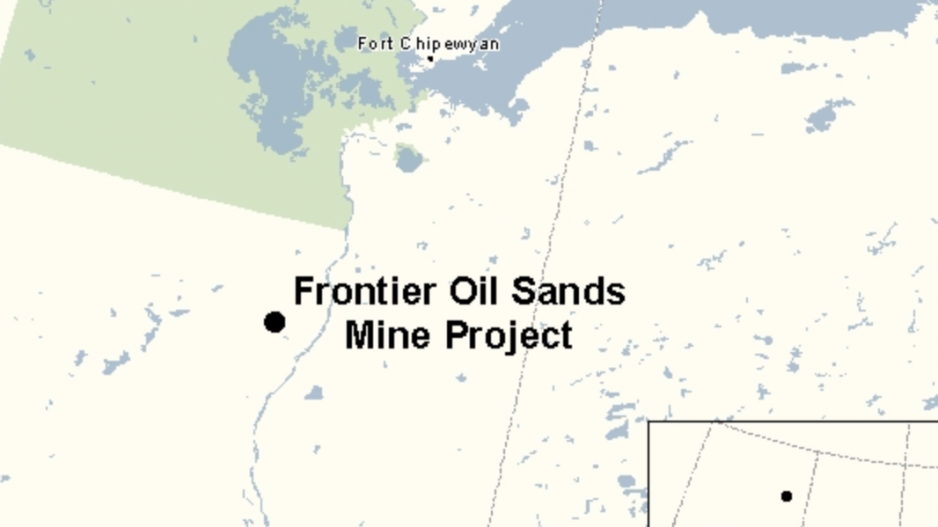What happened: A U.S.-based energy and environment research institute claims Canadian regulators displayed a “reckless disregard” of finances in their decision to approve Teck Resources Ltd.’s proposed oil sands project in Alberta.
Why it matters: The report claims the Canadian government has disregarded facts in an effort to support an industry “in severe financial distress.”
A new report from an American energy and environment research institute claims Canadian environmental regulators recklessly disregarded facts and finances when they approved with conditions Teck Resources Ltd.’s multibillion-dollar Alberta oil sands project last year.
According to the Institute for Energy Economics and Financial Analysis (IEEFA), a joint provincial and federal review panel relied on outlier oil price projections provided by Teck Resources to assess the project’s potential economic and social impact.
“The [joint review panel] ignored, or rejected, ample evidence that current prices for Canadian oil are highly unlikely to be in excess of $95 per barrel for the long-term, as claimed in Teck’s application. A broad survey of market forecasts, including those conducted by the U.S. government, Canada’s own National Energy Bureau (NEB), oil and gas majors and industry consultants demonstrates a consensus that oil prices will remain stagnant over the long term,” wrote IEEFA authors Tom Sanzillo and Kathy Hipple. The IEEFA, Oil Sands Environmental Coalition, Council of Canadians and Stand.earth were among the groups that raised objections.
“[The panel] based its decision on a highly misleading financial forecast. It conferred upon Teck Resources significant development rights for a project with poor financial prospects that will have adverse consequences for taxpayers and the environment.”
Canadian Environmental Assessment Agency (CEAA) documents show that the Vancouver-based company expects to pay Alberta and federal governments an estimated $66 billion in taxes and royalties over the project’s 41-year lifespan. That figure assumes an average long-term real oil price of US$95 per barrel for West Texas Intermediate (WTI) between 2026 and 2066.
Teck Resources also cited International Energy Agency (IEA) forecasts that long-term oil price values will exceed US$95 per barrel during the vast majority of the project’s four decades of operations.
By contrast, the NEB projects crude oil prices to reach US$69 per barrel in 2030 and US$64 per barrel in 2040 in its 2018 energy market assessment – a downward trend attributed to declining global demand for oil. Those figures align with the IEA’s sustainable development scenario, which is fully aligned with the Paris Agreement and assumes a major transformation of the world’s energy system.
The NEB report also noted that the future differential between Western Canadian Select and WTI could average anywhere between US$18 and US$30 as Canadian oil exports are expected to surpass Canadian pipeline export capacity.
In an emailed statement to BIV, Teck Resources stated the company is currently focused on advancing the Frontier project through the regulatory process. Any further decisions regarding the project, it noted, will depend on project conditions and market conditions, among other factors.
"Frontier has the potential to deliver significant value over the course of a 40+ year mine life, operating through multiple price cycles and remaining economic at a range of oil prices," wrote the company. "Frontier’s long life, consistent rate of production and low cash operating costs also make the cyclical nature of oil prices more manageable than developments with shorter lives and declining production rates."
The company also noted that IEEFA has presented in opposition to the project alongside Stand.earth, an environmental advocacy group.
In its report published Wednesday (January 15), IEEFA cites research that tallies the long-term oil price forecasts of nine major oil and gas companies, including BP, Shell, Chevron and Exxon. Their forecasts range between US$55 and US$80 per barrel.
“$95 is misleading as an indicator of likely market performance in Canada,” conclude IEEFA report authors Sanzillo and Hipple. “By basing its decision on an oil price in excess of $95 per barrel, the [joint review panel] decision willfully ignores the facts.”
The joint panel, conducted by the Alberta Energy Regulator and CEAA, approved Teck Resources’ $20 billion project in July 2019, with conditions. Public comments on the potential environmental assessment conditions for the project closed in November.
Canada’s Minister of Environment and Climate Change has yet to issue a decision statement regarding the project and the final conditions it must meet.
The IEEFA report may be read here. The institute is funded by a number of organizations that also fund environmental, clean energy or climate change-focused work, including the Rockefeller Family Fund, Energy Foundation, Mertz-Gilmore Foundation and William and Flora Hewlett Foundation.
The Alberta Energy Regulator and the Impact Assessment Agency of Canada have both been approached for comment.
Read more: Teck's $20 billion oil sands project gets regulatory green light




